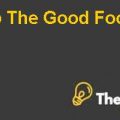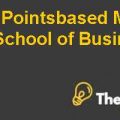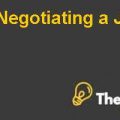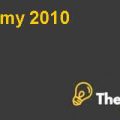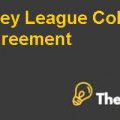
PESTEL Analysis
Political
PepsiCo has been regulated by the Food and Drug Association (FDA) which is a government body and monitors the laws which has been set. However, many companies have different laws and regulations which are being monitored differently in each countries. At some countries there are relaxed laws, whereas, in some countries the laws are stringent. The company has competitive price offering in the market which has high impact of political stability in a country. The cross-border situation varies widely for PepsiCo and it has to make changes according to the desires (Carroll & Buchholtz, 2014).
Economical
Due to the financial crisis in 2007, many companies had to revise their strategies to cater the market in a better way because a low spending power had reduced the sales for many companies. Many companies also had to downsize and layoff its customers. In the case of PepsiCo, the sales of organic food in the United States had increased by 17.1% from 2007 to 2008 due to financial crisis. Due to hob unemployment, many people would stay at home which increases their leisure time and hence more spending on organic food (Harkinson, 2013).
Social
PepsiCo does well in targeting the young generation and kids through their respective culture and social values. The marketing campaign has a same concept in most countries, but the aims of targeting the particular audience is different which varies due to cultural and religious values. However, due to the increased rate of obesity and other diseases due to consumption of organic foods and carbonated beverages, the company has faced many critiques (Carroll & Buchholtz, 2014).
Technological
With the increase in technology, PepsiCo has been targeting well to its younger generation through social media platform. The company increases its brand recall through social media through interactive engagement with consumers. Social media was also held responsible for the successful campaign of Pepsi Taste Challenge. The company is also focusing on research and development of new products so that healthier products could be launched (Galarza, 2014).
Environmental
Many questions have been raised upon PepsiCo’s true deliverance of sustainability and concerns for global environment. The company has been focusing on reducing the effect of greenhouse gases and the environmental pollution, marketing campaigns for kids to lead a healthier life, but at the same time the company is providing an unhealthy product which is the source of many diseases. The use of soy and corn in various products and converting it into a processed food material has made the product unhealthier. Environmental impact and true sustainability helps in the increase of goodwill (Harkinson, 2013).
Legal
The company has failed to achieve the legal bindings of FDA as it recently lost a lawsuit which states that the company provided an unhealthier product while specifically mentioning that the product is healthy and natural in its ingredients (Daily Mail, 2013). Many companies including PepsiCo markets the product based on highlighting the good parts of the products without revealing the negative parts (Ottman, 2011).
Porter’s Five Forces
Purchasing Power of a buyer
The bargaining power of customer is moderate as many would prefer Pepsi over Coke as unique market is captured by both the companies. However, unhealthy products offered by beverages companies have led consumers to a thought that all products offered by companies are similar as they tend to switch to other companies.
Purchasing Power of a Supplier
The large number of substitutes have decreased the bargaining power of the supplier. An increase in competition amongst the top brands have resulted in the easier switching cost because of no price differentials. However, convenience factor increases the sales of the product. In this phase, volume produced is critical to suppliers.
Competitive Rivalry
The main rivals of PepsiCo are Coca-Cola, Nestle, and Kraft Foods. The size of the beverages and the food industry is large, but there are few competitors that dominates the particular market. Coca-Cola is the largest beverage brand with the highest percentage of market share. However, PepsiCo has the highest revenues due to its diverse portfolio. Therefore, the competitive rivalry is high for the company.
Threat of a Substitute
Due to the growing awareness of healthier products, the substitute of natural drinks and fresh juices are increasingly in demand which is the growing threat for the beverages giants. Many health issues including obesity and other heart diseases have allowed consumers to shift preferences. Therefore, the threat of substitute is rated high.......................
This is just a sample partial case solution. Please place the order on the website to order your own originally done case solution.


